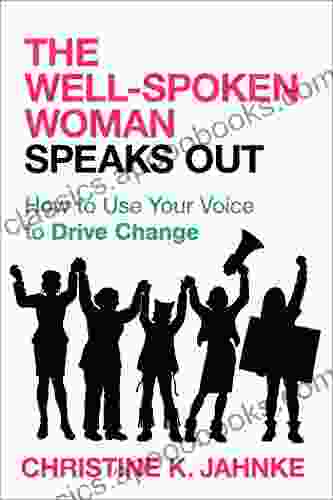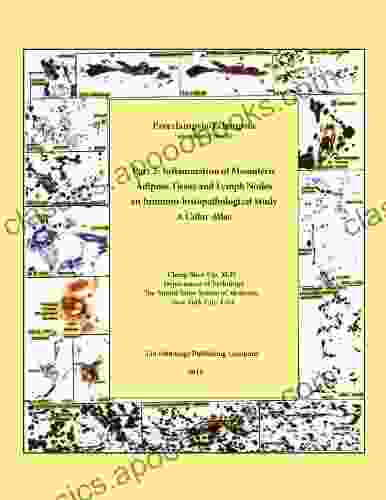The Reparative Effects of Human Rights Trials: A Beacon of Justice and Healing

4.5 out of 5
| Language | : | English |
| File size | : | 2262 KB |
| Text-to-Speech | : | Enabled |
| Screen Reader | : | Supported |
| Enhanced typesetting | : | Enabled |
| Word Wise | : | Enabled |
| Print length | : | 238 pages |
: The Quest for Accountability and Reparation
In a world marred by human suffering and injustice, human rights trials emerge as beacons of hope, offering a pathway towards accountability and reparation. These trials delve into the depths of human atrocities, exposing the darkness of the past and holding perpetrators accountable for their actions. Through a meticulous process of justice, human rights trials strive to restore the dignity of victims, empower communities to heal, and forge a path towards reconciliation.
Restorative Justice: Healing Wounds and Bridging Divides
Human rights trials are not merely about retribution; they are about restoring justice and healing wounds that have festered for far too long. By providing a platform for victims to share their accounts of suffering, these trials create a space for acknowledgement and validation. Victims are empowered to confront their perpetrators, demand accountability, and reclaim their agency in the face of trauma.
Moreover, human rights trials foster a sense of collective responsibility, bridging divides within communities. By shedding light on past wrongngs, these trials promote transparency and historical reckoning, allowing societies to confront their own complicity and work towards reconciliation. Through truth-seeking and restorative measures, human rights trials lay the groundwork for healing and building a more inclusive future.
The International Stage: Holding Perpetrators Accountable
International criminal tribunals, such as the International Criminal Court (ICC),play a pivotal role in ensuring accountability for the most heinous crimes against humanity. These tribunals prosecute individuals who bear the greatest responsibility for atrocities, regardless of their position or affiliation. By upholding international law and pursuing justice beyond national boundaries, international trials send a powerful message that no one is above the law.
The ICC's groundbreaking investigations and prosecutions have brought a measure of justice to victims of genocide, crimes against humanity, and war crimes. These trials not only hold perpetrators accountable but also set precedents for future generations, deterring the commission of further atrocities. By establishing the principle of individual criminal responsibility, international trials contribute to the prevention of mass atrocities and the promotion of a just world Free Download.
Truth Commissions: Unraveling the Past and Fostering Reconciliation
Truth commissions, established in the aftermath of widespread human rights violations, serve as vital mechanisms for uncovering the truth and facilitating reconciliation. These commissions investigate past atrocities, document the extent of human rights abuses, and make recommendations for reparations and systemic reforms.
By providing a comprehensive account of past events, truth commissions contribute to historical understanding and promote accountability for human rights violations. They create a public record of the truth, challenging historical narratives and breaking the silence that has often surrounded periods of conflict and repression. Through their work, truth commissions empower societies to confront their past, learn from their mistakes, and lay the foundations for reconciliation.
Victims' Rights: Empowerment and Healing
At the heart of human rights trials lies a profound commitment to victims' rights. These trials provide victims with an opportunity to participate in the justice process, share their experiences, and seek redress for the wrongs they have endured. Victims' voices are central to human rights trials, ensuring that their perspectives are heard and their suffering is acknowledged.
Through victim-centered approaches, human rights trials empower victims to reclaim their dignity and rebuild their lives. By providing reparations, including compensation, rehabilitation, and restitution, these trials aim to alleviate the economic, social, and psychological consequences of human rights violations. By recognizing the rights and needs of victims, human rights trials promote a culture of respect and compassion, fostering a sense of healing and closure.
Challenges and Critique: Navigating a Complex Landscape
While human rights trials have undoubtedly contributed to restorative justice and accountability, they are not without their challenges and critiques. Critics argue that these trials can be time-consuming, costly, and politically charged. They also raise concerns about the potential for miscarriages of justice and the challenges of ensuring fair and impartial proceedings.
Despite these challenges, human rights trials remain an indispensable tool in the fight against impunity. They provide a powerful platform for exposing the truth, holding perpetrators accountable, and empowering victims to seek justice and reconciliation. By carefully navigating the complexities of these trials, we can harness their transformative potential to build a more just and equitable world.
: Embracing a Future Rooted in Justice and Healing
Human rights trials are not merely legal proceedings; they are transformative events that have the power to reshape the course of history. By providing accountability for past atrocities, empowering victims, and fostering reconciliation, these trials create a ripple effect that extends far beyond the courtroom. They serve as a reminder that human rights violations will not be tolerated and that justice must prevail, no matter how long it takes.
As we look towards the future, let us embrace the transformative power of human rights trials. Let us continue to support these vital mechanisms of justice, ensuring that they remain accessible to victims, hold perpetrators accountable, and contribute to the healing and reconciliation of societies around the world. By investing in human rights trials, we invest in a future where justice and human dignity prevail.
4.5 out of 5
| Language | : | English |
| File size | : | 2262 KB |
| Text-to-Speech | : | Enabled |
| Screen Reader | : | Supported |
| Enhanced typesetting | : | Enabled |
| Word Wise | : | Enabled |
| Print length | : | 238 pages |
Do you want to contribute by writing guest posts on this blog?
Please contact us and send us a resume of previous articles that you have written.
 Book
Book Novel
Novel Page
Page Chapter
Chapter Text
Text Story
Story Genre
Genre Reader
Reader Library
Library Paperback
Paperback E-book
E-book Magazine
Magazine Newspaper
Newspaper Paragraph
Paragraph Sentence
Sentence Bookmark
Bookmark Shelf
Shelf Glossary
Glossary Bibliography
Bibliography Foreword
Foreword Preface
Preface Synopsis
Synopsis Annotation
Annotation Footnote
Footnote Manuscript
Manuscript Scroll
Scroll Codex
Codex Tome
Tome Bestseller
Bestseller Classics
Classics Library card
Library card Narrative
Narrative Biography
Biography Autobiography
Autobiography Memoir
Memoir Reference
Reference Encyclopedia
Encyclopedia Monica Boothe
Monica Boothe Peter Gizzi
Peter Gizzi Brian Shea
Brian Shea Sana Krasikov
Sana Krasikov David P Carter
David P Carter Edward Rutherfurd
Edward Rutherfurd Ginger Gelsheimer
Ginger Gelsheimer John Ostrosky
John Ostrosky Thomas W Wild
Thomas W Wild John H Tullock
John H Tullock Jean Paul Dubois
Jean Paul Dubois Mitchell Mancini
Mitchell Mancini Stanfield Major
Stanfield Major Elizabeth Nickson
Elizabeth Nickson Megan Skye Blancada
Megan Skye Blancada Douglas Spaniol
Douglas Spaniol Philip Pullman
Philip Pullman Keith Morrison
Keith Morrison Simone Turchetti
Simone Turchetti Andrew Paquette
Andrew Paquette
Light bulbAdvertise smarter! Our strategic ad space ensures maximum exposure. Reserve your spot today!

 Miguel NelsonUnveiling the Dark Truth: The Untold Story of Mass Political Extremism in the...
Miguel NelsonUnveiling the Dark Truth: The Untold Story of Mass Political Extremism in the... Emilio CoxFollow ·8.2k
Emilio CoxFollow ·8.2k Jett PowellFollow ·2.6k
Jett PowellFollow ·2.6k Adrien BlairFollow ·18.2k
Adrien BlairFollow ·18.2k Ernesto SabatoFollow ·5.1k
Ernesto SabatoFollow ·5.1k Finn CoxFollow ·7.3k
Finn CoxFollow ·7.3k Carter HayesFollow ·8k
Carter HayesFollow ·8k Cormac McCarthyFollow ·4.1k
Cormac McCarthyFollow ·4.1k Yasushi InoueFollow ·5.3k
Yasushi InoueFollow ·5.3k

 Devin Ross
Devin RossUnlocking the Secrets of the Mind: Brain Mapping...
The human...

 Jacob Foster
Jacob FosterNovel of Misconception, Truth, and Love: A Journey of...
Unraveling the Lies We...

 Benji Powell
Benji PowellThe Only Technique You Will Ever Need: Unlocking the...
By [Author's...

 Pete Blair
Pete BlairUnveiling the Enchanting World of 'Magnolia House' by...
A Literary...
4.5 out of 5
| Language | : | English |
| File size | : | 2262 KB |
| Text-to-Speech | : | Enabled |
| Screen Reader | : | Supported |
| Enhanced typesetting | : | Enabled |
| Word Wise | : | Enabled |
| Print length | : | 238 pages |













